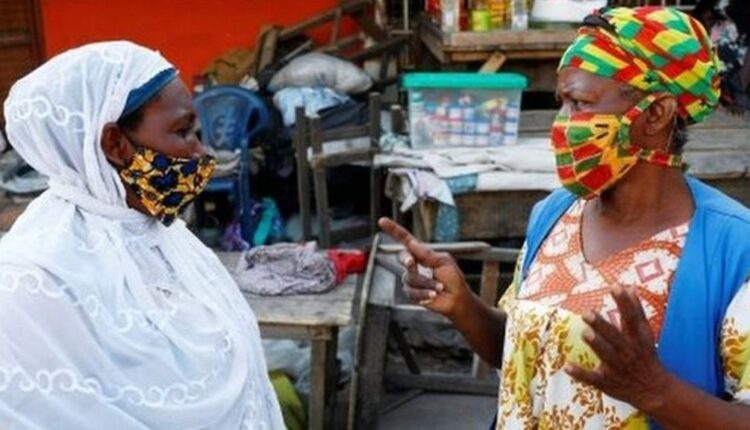
Health Service Warns COVID Infections Could Collapse Ghana’s Health System
The Ghana Health Service (GHS) has warned that continued laxity in adhering to the safety protocols of the COVID-19, amid rising cases of the Delta variant, could outstrip the country’s capacity to contain the pandemic.
Such a situation, the GHS believes, would have dire consequences on the economy and social life of the populace.
The Director-General of the GHS, Dr Patrick Kuma-Aboagye, made these remarks when he addressed the media in Accra on Wednesday, July 21, 2021.
“Despite all the enhanced capability, and all the things we have done and continue to do, not just the health sector, but all other agencies and sectors, if we allow this to go it will still outstrip our capacity to respond appropriately,” he said.
The Director-General explained that the country’s capacity for case management has been strengthened, with an increased number of treatment centres from two to 70, trained critical care staff, and provision of equipment.
Other efforts in this regard were the establishment of the Ghana Infectious Disease Centre (GIDC), improved capacity for genomic sequencing, as well as the establishment of an electronic data collection system for surveillance.
Adding that, “oxygen supply is currently adequate, but may be limited in cases if high surges occur.”
Dr Kuma-Aboagye, then cautioned that should the current trend of non-conformance to the safety protocols continue, there would be chaos at the treatment centres.
“Despite the delta variant, the public health preventive measures remain the same, let’s abide by them. Let’s avoid crowds, use our masks, wash our hands, and maintain social distancing,” he encouraged.
He also noted that the surest way of containing the pandemic and further spread was to abide by the safety protocols, noting that, adherence has the tendency to reduce the number of cases drastically.
“There was a time that we saw about 55% of our population wearing the mask, and we saw the rapid decline. Now, I don’t think we can even get 5%, so the media and everyone should help us to ensure we avoid the spread of the virus,” he said.
READ ALSO: We Can’t Afford Another COVID-19 Wave – Akufo-Addo
Bed facilities
On the country’s bed capacity, he said that currently there is a total of 430, with 125 of the beds available for severe and critical cases.
Meanwhile, 192 have been used for admission, out of which, 29 are being used for the admission of severe cases, and 14 beds for critical cases.
Dr Kuma-Aboagye, quickly added that efforts are being made to expand the bed capacity, adding that by the time the Korle Bu treatment unit was completed, together with some other expansions across the country, there would be more beds.
Case count
On case count, he said that the Ghana Health Service recorded 2,500 COVID-19 cases from the 1st to 14th of July 2021, which has increased the country’s cases to nearly 100,000.
The cases recorded at various schools across the country stood at 2,453, from 367 schools.
There are 238 active cases among students from six regions, Ashanti – 151, Greater Accra – 75, Oti – 8, Ahafo – 2, Bono – 1, and Bono East – 1.
Meanwhile, 90.3% of the students infected by the disease have recovered.
Measures to contain the spike
In response to the current situation, Dr Kuma-Aboagye said that, there would be intensified educational and sensitisation campaign across the country on adhering to the safety protocols.
By so doing, there will be the “mobilisation of opinion leaders, religious and traditional leaders, and key influencers to ensure that we abide by the protocols.”
In addition to this would be communication messages that would be tailored to the needs of localities and their beliefs to ensure that more people.
There would also be advocacy for the enforcement of legislations on the adherence to the COVID-19 safety protocols.
The GHS would also scale up its testing capacity by rapidly increasing access to antigen test, particularly for screening at large areas including schools, workplaces, and points of entry into the country.


